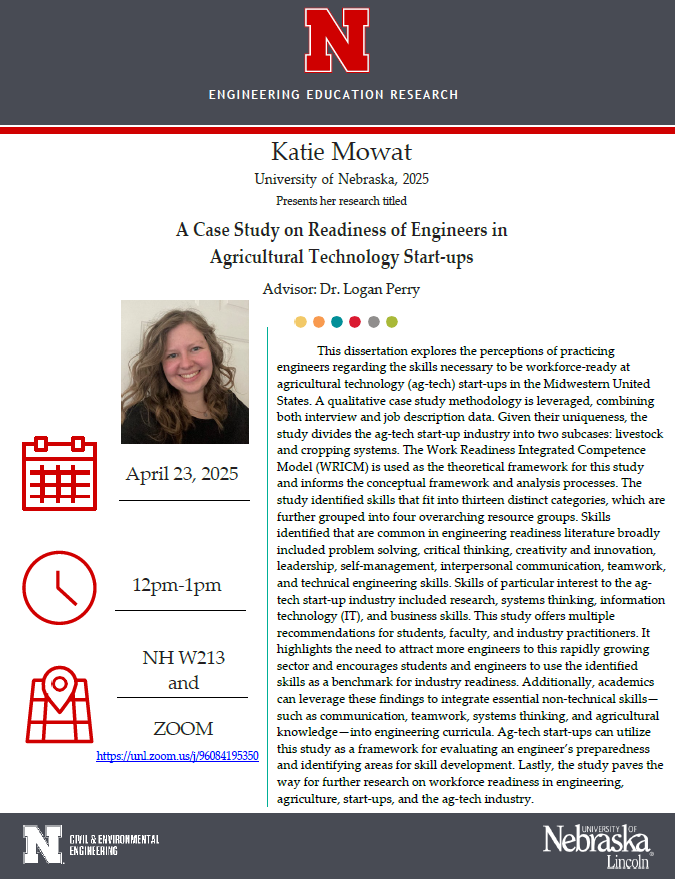
Speaker: Katie Mowat
When: Wednesday, April 23rd, 12:00PM-1:00PM
Where: NH W213 (Lincoln)
Zoom: https://unl.zoom.us/j/96084195350
Title: A Case Study on Readiness of Engineers in Agricultural Technology Start-ups
Abstract: This dissertation explores the perceptions of practicing engineers regarding the skills necessary to be workforce-ready at agricultural technology (ag-tech) start-ups in the Midwestern United States. A qualitative case study methodology is leveraged, combining both interview and job description data. Given their uniqueness, the study divides the ag-tech start-up industry into two subcases: livestock and cropping systems. The Work Readiness Integrated Competence Model (WRICM) is used as the theoretical framework for this study and informs the conceptual framework and analysis processes. The study identified skills that fit into thirteen distinct categories, which are further grouped into four overarching resource groups. Skills identified that are common in engineering readiness literature broadly included problem solving, critical thinking, creativity and innovation, leadership, self-management, interpersonal communication, teamwork, and technical engineering skills. Skills of particular interest to the agtech start-up industry included research, systems thinking, information technology (IT), and business skills. This study offers multiple recommendations for students, faculty, and industry practitioners. It highlights the need to attract more engineers to this rapidly growing sector and encourages students and engineers to use the identified skills as a benchmark for industry readiness. Additionally, academics can leverage these findings to integrate essential non-technical skills— such as communication, teamwork, systems thinking, and agricultural knowledge—into engineering curricula. Ag-tech start ups can utilize this study as a framework for evaluating an engineer’s preparedness and identifying areas for skill development. Lastly, the study paves the way for further research on workforce readiness in engineering, agriculture, start-ups, and the ag-tech industry.